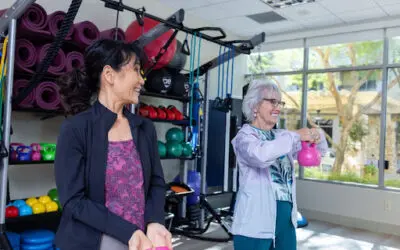Everyone wants to feel good. And most older adults know what they should do to support their health and well-being. That includes eating a healthy diet, exercising regularly and connecting with others.
Of course, life isn’t always fair or fun. Life-changing events, such as the death of loved ones, chronic health conditions, loss of mobility, or difficulty adjusting to retirement, make us unhappy. That’s perfectly normal and not unexpected as you grow older. Most adults will eventually adjust to the change. Some people, however, have more trouble adjusting. When disturbances in thinking, emotion, and/or behavior cause significant distress or interfere with daily life, it’s time to talk to a doctor about mental health.
Senior Mental Health Is a Medical Issue, Not a Character Flaw
Sadly, mental illness is often seen as a sign of weakness or a moral failing. It’s sometimes rationalized or dismissed as a normal part of aging. But that’s simply not true. Most older adults report good mental health and have fewer mental health problems than other age groups. However, one in four older adults experiences a mental health problem such as depression, anxiety, schizophrenia or dementia, according to the American Psychological Association.
Depression and anxiety are the most prevalent senior mental health issues. Left untreated, they can interfere with the ability to function and find enjoyment in life, increase the risk of heart disease, reduce the ability to recover from illness, and raise the risk of suicide.
Don’t Wait Until Your Symptoms Are Overwhelming
Seek professional help if you’re experiencing severe or distressing symptoms that have lasted two weeks or more, such as:
- Difficulty sleeping
- Appetite changes that result in unwanted weight changes
- Struggling to get out of bed in the morning because of mood
- Difficulty concentrating
- Loss of interest in things you usually find enjoyable
- Inability to perform usual daily functions and responsibilities
Talk about your concerns with your primary care provider, who can refer you to a senior mental health specialist if needed.
Take Care of Your Mental Health
Mental health — your emotional, psychological and social well-being — is essential to your overall health and quality of life. Self-care can help maintain good mental health, reduce stress, increase energy and lower your risk of illness. Here are some tips to make self-care part of your daily life:
- Get regular exercise. Just 30 minutes of walking every day can help boost your mood and improve your health. Small amounts of exercise add up, so don’t be discouraged if you can’t do 30 minutes at one time.
- Eat healthy, regular meals and stay hydrated. A balanced diet and plenty of water can improve your energy and focus throughout the day. Also, limit caffeinated beverages such as soft drinks or coffee.
- Make sleep a priority. Stick to a schedule, and make sure you’re getting enough sleep. Blue light from devices and screens can make it harder to fall asleep, so reduce blue light exposure from your phone or computer before bedtime.
- Try a relaxing activity. Explore relaxation or wellness programs or apps, which may incorporate meditation, muscle relaxation, or breathing exercises. Schedule regular times for these and other healthy activities you might enjoy, such as journaling.
- Set goals and priorities. Decide what must get done now and what can wait. Learn to say “no” to new tasks if you start to feel like you’re taking on too much. Try to be mindful of what you’ve accomplished at the end of the day, not what you’ve been unable to do.
- Practice gratitude. Remind yourself daily of things you’re grateful for. Be specific. Write them down at night or replay them in your mind.
- Focus on positivity. Identify and challenge your negative and unhelpful thoughts.
- Stay connected. Reach out to friends or family members who can provide emotional support and practical help.
A Holistic Approach to Wellness that Supports Mind, Body and Spirit
Supporting residents’ health is our top priority at Sagewood. That’s why we offer programs, classes, and activities that strengthen the body, sharpen the mind and nourish the soul; they also provide opportunities for connection and friendship.
To learn how our wellness program supports senior mental health, visit the Activities page. For information about our innovative memory care program and how it supports the mental, physical and emotional health of residents, visit our Memory Care page. Or simply contact us with any questions you may have.



